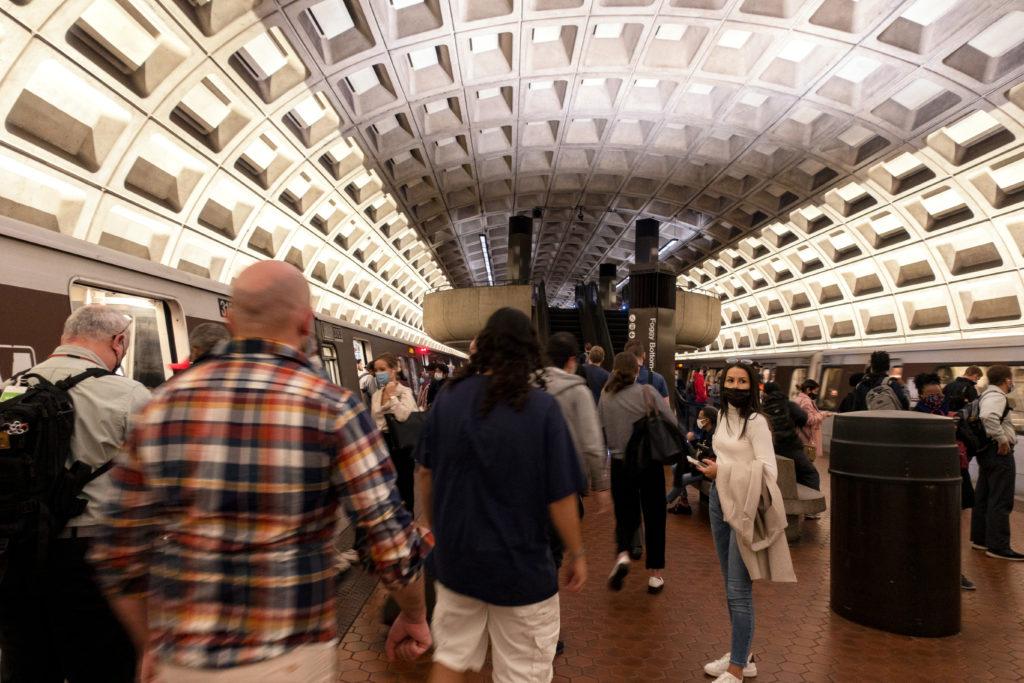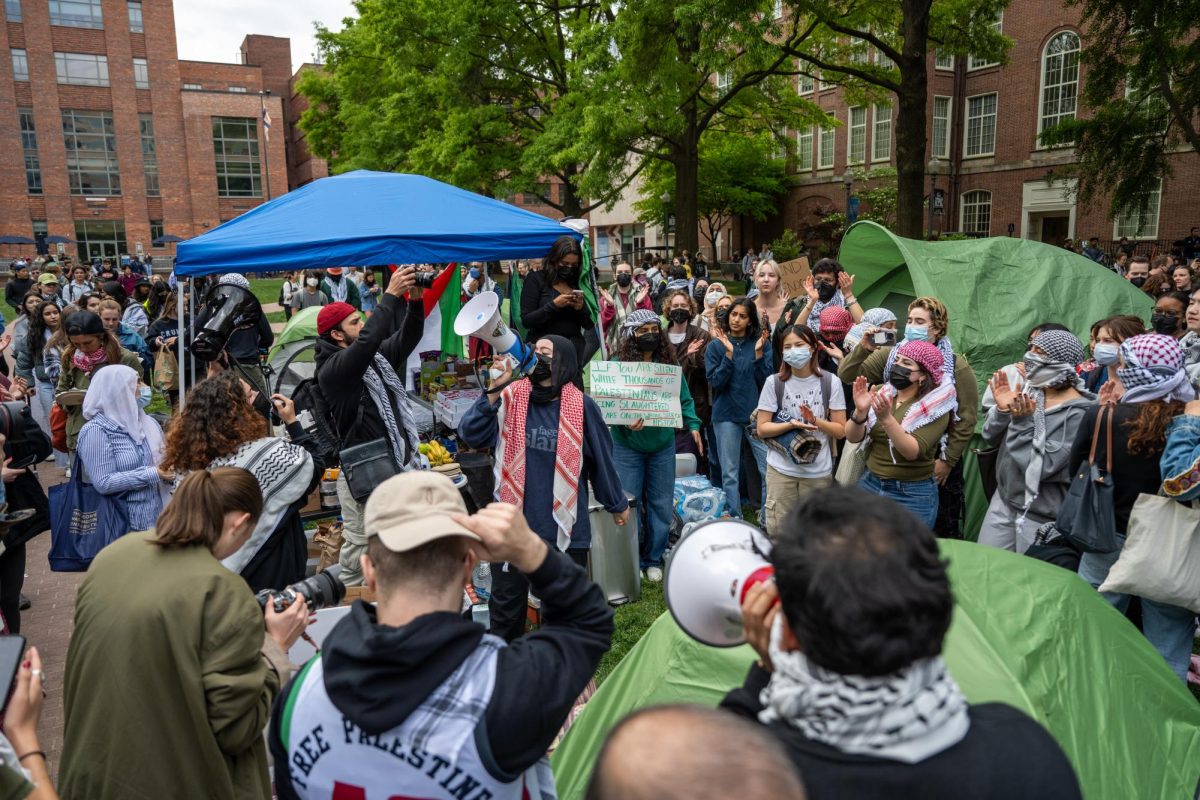Major delays on the Metro disrupted students’ daily schedules this week after agency officials pulled more than 60 percent of its rail cars off the tracks over safety concerns sparked by a recent derailment.
More than 15 students and local commuters in interviews said they missed class or left home as much as an hour early to travel to campus because of the delayed arrivals, which ranged from 15 to 30 minutes. Metro officials said they expect reduced service to last through the end of the week after an investigation into a Blue Line train derailment last week found at least 21 railcars with wheel and axle equipment failures since officials started inspecting the entire fleet last week.
The Washington Metrorail Safety Commission ordered Metro to pull all 7000-series railcars, about 60 percent of its fleet, out of service Sunday night because of wheel and axle malfunctions, creating 30-minute service delays at all stations. A train derailment near Arlington Cemetery last week, which didn’t result in any serious injuries but caused the Blue Line to close for several days, spurred the WMSC and National Transportation Safety Board to investigate the incident.
Caitlin Murphy, a doctoral student of public health, said the rail delays have extended her usual 40-minute commute from the Brookland neighborhood in Northeast to more than an hour. She said the delays have led to a time crunch that has made it more difficult to simultaneously work as a student and care for her daughter.
She said alternate forms of transportation, like Uber, are quicker but more expensive.
“There’s been days where I have just been beyond frustrated at how to get downtown,” she said. “I’ve taken Ubers, but the Uber pricing obviously gets insane. So it’s definitely taking a dent on my budget as well.”
Murphy said she’s felt increased stress trying to budget the time necessary to pick up and drop off her daughter when going to work in addition to the longer commute. She said she’s fortunate to be able to afford Uber rides, which can be too expensive for many students and residents when public transportation goes offline.
“I work, and I go to school, and I have a daughter, so it’s just been more stressful,” she said. “I’m at a point in my life where I can pay some extra money if needed to and I feel very badly for the students who are not in that financial situation.”
Freshman Zayneb Rachidi, a biomedical engineering major who commutes from Northern Virginia, said she has arrived to the station at 7:30 a.m. over the past few days because of delays, nearly an hour earlier than her usual arrival time of 8:20 a.m.
“It hit hard,” she said. “I had to come early every day and just hope for the best.”
She said many of the delays don’t appear on the Metro app, and arrival times for trains have varied widely. She said the 30-minute delays because of Blue line closures last week were already excessive and caused her to miss a lecture and a midterm that she had to make up on her own time.
“It’s really affected me and I’m just waiting to go back to normal,” she said.
She said she worries that severe crowding on the Metro caused by service slowdowns is increasing the risk of COVID-19 transmission.
“It’s unbearable to sit there,” she said. “I get really scared of COVID, because I actually got it the first week coming here, and I don’t want to get it. I have diabetes, and it affects my health a lot more.”
Freshman Niko Kluver, a public policy major who rides the Metro two or three times each week, said he set aside more time for transit to compensate for the delays, leaving at least 15 minutes earlier to visit friends in Virginia. He said he heard about the delays from posts on Twitter and Instagram Sunday night, which prompted him to recalculate his trip to make sure he wasn’t too late.
“I did not have time to change the plans, so I just kind of stuck with it and bore the brunt of it, and that’s what I’m going to have to do, especially if I’m going a far distance,” he said.
Kluver said he can’t rely on the bus to travel outside of the city, and switching between trains and buses can be very slow, especially with the heavy delays.
“If you just miss the train, you have to wait 29 minutes for the next one,” he said.







